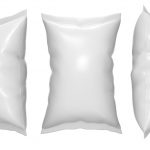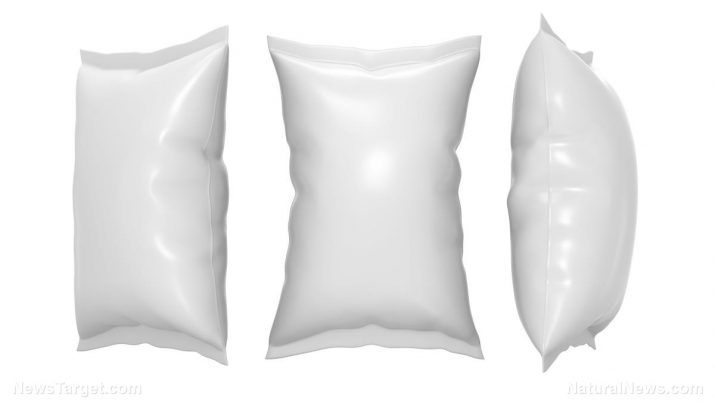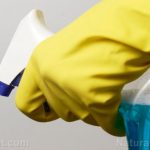
Phthalates found in plastic food packaging linked to chronic disease
Tuesday, July 31, 2018 by Edsel Cook
http://www.products.news/2018-07-31-phthalates-found-in-plastic-food-packaging-linked-to-chronic-disease.html

The plastic packaging you use for storing your food contains toxic chemicals that will endanger your health. In an article in Natural Health 365, Australian researchers reported finding evidence that phthalates can lead to chronic diseases.
A joint study by the South Australian Health and Medical Research Institute (SAHMRI) and the University of Adelaide (UA) analyzed the urine samples from 1,500 male participants for phthalates in their bodies. The researchers reported that almost all of the participants showed high levels of the chemicals in their bodies.
Phthalates are associated with cardiovascular disease, high blood pressure, and diabetes. Small amounts of the chemicals are enough to trigger various health problems.
The researchers theorized that the phthalates came from the plastic food packaging used to preserve most processed food on the market. The chemicals contaminated the contents of plastic bottles and containers, which entered the bodies of the people who consumed the packaged food and drinks.
Most Western diets contain a lot of processed food kept in plastic food packaging. These prepackaged foods have been linked to high phthalate levels and chronic diseases.
Phthalates are not limited to packaged and processed foods found on grocery shelves. Fast food products are also filled with them. And it is not just the edible stuff you have to worry about. Cosmetics, lotions, medical tubes, and many other personal care products also have phthalates.
The chemicals disrupt hormones and prevent the body from producing vitamin D, which is important for the immune system. An analysis of U.S. National Health and Nutrition Examination Survey showed that high levels of exposure to phthalates lowered the amount of the vitamin in the blood. (Related: Gases from a car air freshener caused a car to explode.)
Avoid toxic phthalates by getting fresh foods and non-plastic containers
In response to the growing phthalate problems and demands from health-conscious consumers, researchers are working on alternative packaging that does not contain phthalates. U.K.-based research group Skipping Rocks Lab created the “edible water ball.” A consumable plastic packaging for drinking water that replaces plastic bottles, the water ball can be eaten once it is empty.
Their German counterparts have come up with cutlery and plates that are made from leaves instead of plastics. These new plant-based utensils are biodegradable and natural; they will break down on their own and do not contain phthalates.
Another way to avoid phthalates is to change your buying habits. Stop getting processed foods that use plastic packaging. Instead, switch to non-processed food.
Buy fresh and organic produce – fruits, vegetables, and grass-fed livestock – that is grown or raised in local farms or even your very own private garden. Replace packaged foods with meals that are cooked at home whenever you can.
Increasing your consumption of fresh foods not only helps reduce the amount of phthalates that you ingest or absorb. It will also improve your health by providing you with nutrients like vitamin D that might have been depleted or neutralized by phthalates.
If you need to bring food with you on a trip, get a container that is not made from plastic. A stainless steel or glass container can preserve your food without contaminating it with toxic chemicals. Similarly, keep drinking water in a glass jar or bottle.
The use of reusable non-plastic containers grants an additional bonus. You will reduce the amount of plastic pollution that gets into the environment, especially since single-use plastics like food packaging take forever to break down and will contaminate marine food supplies.
Find out what other dangerous chemicals might be harming your health at Chemicals.news.
Sources include:
Tagged Under: Tags: badhealth, badpollution, chronic diseases, clean foods, fresh foods, Hormone disruptors, organics, Personal care products, phthalates, plastic containers, plastic packaging, research, science, toxic chemicals





